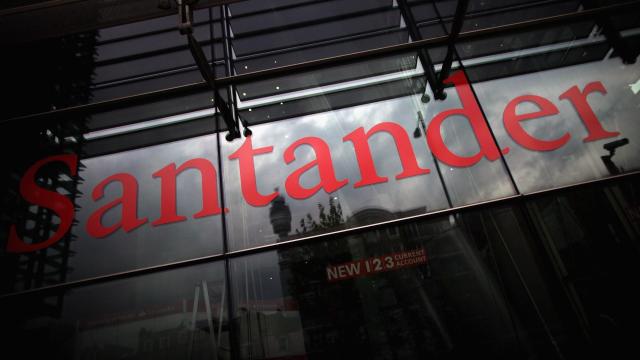Tens of thousands of people in the United Kingdom probably thought they had been especially good this past year when they saw their bank accounts on Christmas Day, all of which had more money than they expected. Alas, Santa Claus doesn’t have enough cash in his reserves to justify the roughly $242 million in payments, but European bank Santander does, and it would like its money back, please.
It’s come to light in recent days that due to a “technical issue,” Santander UK sent out millions to about 75,000 people and companies on Dec. 25 that were not supposed to receive that money. First reported by the Times of London, the payments were sent to individuals who had already been paid by one of 2,000 businesses with accounts at Santander.
The bank essentially paid these people a second time, although the money for the extra payment came from its own coffers. That’s got to hurt, but it’s probably way less painful than the wrath of 2,000 customers if the situation have been reversed.
According to the New York Times, many of the 75,000 people who received the payments were customers of rival banks, including Barclays, HSBC, and Virgin Money. In a statement to the outlet, Santander UK apologised for the error and said it would work with its rivals to get the money back. It will also be using its own processes in the operation, but did not specify what those were.
“We’re sorry that due to a technical issue, some payments from our corporate clients were incorrectly duplicated on the recipients’ accounts,” the bank told the Times. “None of our clients were at any point left out of pocket as a result, and we will be working hard with many banks across the U.K. to recover the duplicated transactions over the coming days.”
Gizmodo reached out to Santander UK on Saturday to learn more about the technical error that occurred and ask what consumers who received the mistaken payment should do in response. We haven’t heard back yet, but we’ll make sure to update this article if we do.
Although it was the bank’s mistake, the people who received the money could end up in the most trouble, especially if they spend it. (Maybe I’ve watched too many dramas but spending money that mysteriously ends up in your account sounds like a recipe for disaster).
Take the cautionary tale of Kelyn Spadoni, a 911 dispatcher in Louisiana who in early 2021 received $2 million from Charles Schwab, her brokerage firm, by mistake. In fact, the company originally meant to deposit just $114 into her Fidelity account. Spadoni proceeded to buy a car and a house within a day of getting the money and refused to answer Charles Schwab when it contacted her asking for the money.
Last year, Spadoni was arrested for theft, fraud, and illegal transfer of monetary funds. In the end, Charles Schwab was able to recover about 75% of the money, but it’s not clear what happened to the rest.
Folks, we’ve already got too many problems, so let’s do ourselves a favour in 2022: Don’t spend money unless you signed for it and know where it comes from.
